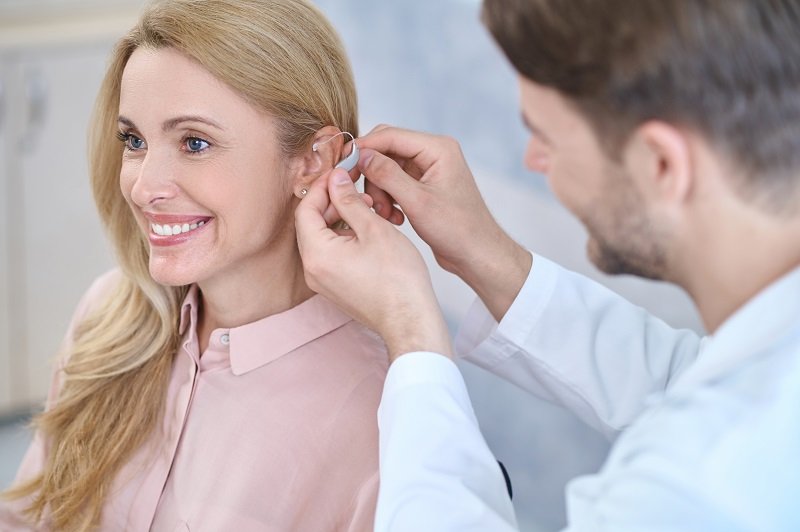For years now, the audiology world has been preparing for the advent of over-the-counter (OTC) hearing aids. While the concept of making hearing aids more widely accessible is appealing, many hearing professionals have worried that OTC hearing aids will draw patients away from professional care. A new study sheds light on the interplay between DIY hearing aid options and the audiology field.
A recent study conducted by researchers at the Medical University of South Carolina assessed hearing healthcare for 660 adults ranging in age from 65 to 75. The study participants did not have documented hearing loss and were routinely visiting their primary care physician (PCP). T
The 660 participants were evenly divided into three groups and each group was assigned a different hearing screening protocol. The three hearing screening protocols were:
- An at-home hearing screening, without PCP encouragement to complete the screening
- An at-home hearing screening, with PCP encouragement to complete the screening
- A hearing screening completed in the medical office while visiting their PCP
The researchers followed the participants to track how many participants completed the screening within 120 days, how many failed, how many received a follow-up appointment, how many received a recommendation for hearing aids, and how many obtained hearing aids.
One of the most startling results from the study is the number of participants in each group who completed the hearing screening. Only 22.7 percent of the at-home group with no PCP encouragement completed the screening, while 26.8 percent of the at-home group with PCP encouragement completed their hearing screenings. In contrast, 100 percent of participants in the in-office screening group completed the hearing screening.
Of those in the at-home groups who completed their hearing screenings, over 80 percent failed the screening, while 54.5 percent of the in-office group failed the hearing screening. These statistics reveal that although at-home hearing screenings are an accurate and reliable way to identify hearing loss, using at-home screenings can result in hearing loss going unidentified. This is because of the large number of people who simply do not complete the at-home hearing screening, even with PCP encouragement.
The researchers also completed a cost-effectiveness analysis for each of the protocols. They found that, although the in-office group had the highest costs for the hearing screening alone, that same group had the lowest average cost per patient throughout the entire process among those who failed their screening. The in-office group also had the greatest estimated quality of life improvement. Of the 660 adults who participated in this study, only five obtained hearing aids by the time the study ended. Four of those participants were part of the in-office group.
This study shows that while at-home and DIY options can be effective, they cannot replace professional care. Working with a hearing professional is the best way to ensure positive outcomes. Although some patients will choose OTC options, the audiology field is far from irrelevant.
For more information about the relationship between audiology professionals and OTC hearing aids, and how you can ensure that your practice succeeds in our DIY world, we welcome you to contact us today at Audiology Plus. We are committed to helping your business grow.




